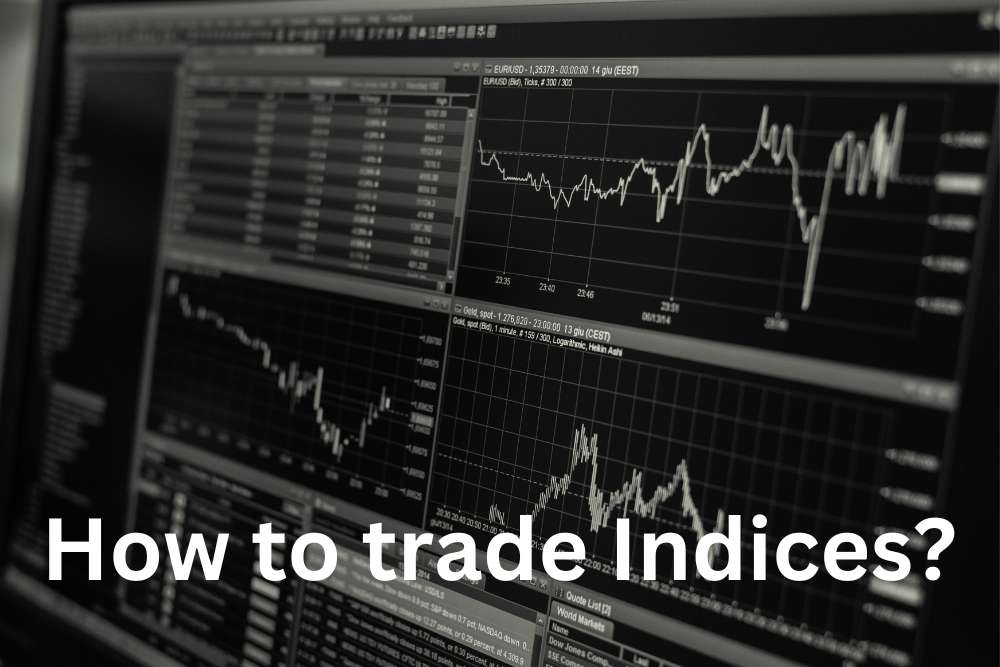Trading has evolved into a lucrative avenue for generating income, attracting millions of individuals and corporations alike to engage in financial markets with the aim of reaping monetary benefits. Nevertheless, it is imperative to acknowledge the inherent risks associated with these financial products.
In the discourse that follows, our attention turns toward a prominent player in the financial markets—Indices. Through this article, we endeavor to unravel the intricacies of indices trading, equipping traders with the knowledge required to navigate this realm and execute successful trades in the online arena. Join us as we delve into the world of indices trading, dissecting its nuances and shedding light on its mechanics.
What is Indices Trading?
Indices, also referred to as index funds, constitute a form of pooled investments that encompass a variety of financial vehicles. These encompass mutual funds, Exchange-Traded Funds (ETFs), or even shares of individual companies. At their core, these financial products are meticulously structured to emulate the performance exhibited by specific stock indexes.
The underlying objective of each index fund is to mirror the composition of the designated stock index. This strategic alignment serves to engender returns that closely mirror the performance of the given index, achieving a harmonious synchrony.
Integral to the orchestration of these investments are fund managers. These skilled professionals undertake the responsibility of periodically rebalancing the fund’s holdings. This meticulous recalibration is executed with a singular purpose—to ensure that the fund’s composition closely adheres to the weightage of the targeted index. In this manner, index funds remain aligned with the fluctuations and dynamics of the market, endeavouring to achieve a mirror-like resemblance to the chosen index’s trajectory.
How to Trade Indices?
Outlined below are the steps that traders can seamlessly follow to engage in online trading of these distinctive investments. It’s noteworthy that indices are computed through various methodologies, including simple average, price-weighted methods, and weighted average methods.
After that traders can trade them following the given steps:
Selecting the method of Trade
Traders online can trade indices in various ways. Out of these traders have to decide which of the methods is suitable for them. They have CFDs and simple index fund trading.
With CFDs traders get into an agreement to exchange the difference of the product from time of contract to its expiry date. Or they can have simple index fund investment that is based on the price of the indices.
Create Your Trading Account
Next we have to create an account with a regulated broker. Traders should choose a platform that has advanced facilities, trading platform, is secure and has proper regulation of top-authorities.
Then they can enter the necessary details to open their trading account. Once created traders then can login and use the services with deposit of funds to trade in indices.
Decide between cash, futures or options indices
After that traders are provided with three options that they need to select from. They can trade indices in cash, futures or options. As per the knowledge, skill power and availability of funds traders can decide the suitable one.
Select the Index to Trade
Following this step traders then go for selecting the index they wish to trade. Indexes should be selected on the basis of trading style, knowledge and efficiency of the trader.
Also, consider the term of your trade before you finalise the index to trade. A trade could be long term or short depending on the trader and requirements to achieve the trading goal.
Set Stop Loss and Monitor Trade
In the last step traders have to set their stop-loss order to minimise the trading risks. It is important to set such order types to have risk management. After that traders can monitor their trade and make changes as per market conditions.
Pros and Cons of Indices
Certainly, understanding the pros and cons of trading in indices is crucial for traders to make informed decisions. By being aware of these points, traders can navigate the world of indices trading more effectively and make sound trading choices. Below are the pros and cons to consider:
| Pros | Cons |
| It helps in easy diversification of portfolio. | They cannot beat the financial markets |
| Indices have lower fees than actively managed funds | Low return potential |
| Lower risk than the actively managed funds | No control on fund composition |
| Requires little research and knowledge | Less downside protection |
| Good way of investment for traders who wish pool trading | |
| Shares of various companies are traded of a particular industry |
Conclusion
Indices trading presents itself as a highly effective avenue within the realm of financial markets. These indices are essentially conglomerates of shares derived from companies operating within the same industry. This amalgamation forms a cohesive unit that traders can engage with, offering an array of advantages.
One notable advantage is the provision of a fund manager who expertly oversees the management of the indices, ensuring a streamlined trading experience for investors. Furthermore, indices trading entails minimal research requirements, streamlining the decision-making process for traders. This convenience is accompanied by relatively low fees, enhancing the appeal of indices trading.
For traders looking to delve into this trading arena, this article serves as an invaluable guide. It delves into the fundamental aspects of indices trading, elucidating what indices are and how traders can actively engage in this domain. Moreover, the article offers a comprehensive exploration of the pros and cons intrinsic to indices trading, enabling traders to weigh their options strategically.
In essence, this guide stands as a beacon for traders who are pressed for time yet eager to unravel the intricacies of indices trading. It equips them with essential insights, empowering them to make informed decisions as they embark on a rewarding journey within the world of indices trading.










